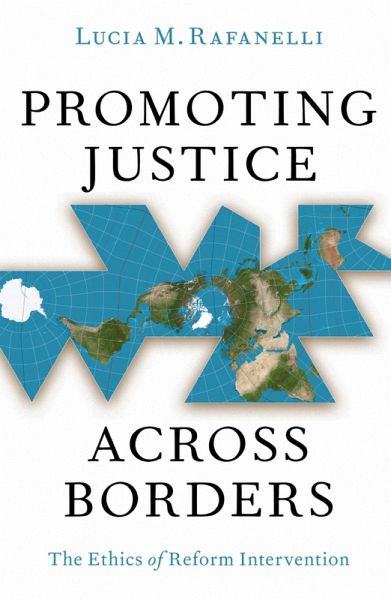
Promoting Justice Across Borders (eBook, ePUB)
The Ethics of Reform Intervention
Versandkostenfrei!
Sofort per Download lieferbar
30,95 €
inkl. MwSt.
Weitere Ausgaben:

PAYBACK Punkte
15 °P sammeln!
Global political actors, from states and NGOs to activist groups and individuals, exert influence in societies beyond their own in myriad ways--including via public criticism, consumer boycotts, divestment campaigns, sanctions, and forceful intervention. Often, they do so in the name of justice-promotion. While attempts to promote justice in other societies can do good, they are also often subject to moral criticism and raise several serious moral questions. For example, are there ways to promote one's own ideas about justice in another society while still treating its members tolerantly? Are ...
Global political actors, from states and NGOs to activist groups and individuals, exert influence in societies beyond their own in myriad ways--including via public criticism, consumer boycotts, divestment campaigns, sanctions, and forceful intervention. Often, they do so in the name of justice-promotion. While attempts to promote justice in other societies can do good, they are also often subject to moral criticism and raise several serious moral questions. For example, are there ways to promote one's own ideas about justice in another society while still treating its members tolerantly? Are there ways to do so without disrespecting their legitimate political institutions or undermining their collective self-determination? To understand the ethics of justice-promoting intervention, Lucia M. Rafanelli moves beyond the traditional focus of other scholarship in this area on states waging wars or employing other conventional tools of coercive foreign policy. Specifically, Rafanelli constructs a philosophically-grounded and nuanced ethics of intervention to determine when attempts to promote justice in foreign societies are morally permissible. Promoting Justice Across Borders develops ethical standards for justice-promoting intervention that call on us to rethink received notions about the ordinary bounds of politics, and to abandon the thought that politics does and should take place primarily within the state. These ethical standards also give us a model for how to engage in political struggles for justice on a global scale--not only in conditions of supreme emergency, but in the ordinary circumstances of everyday global politics. They therefore form the basis of a cosmopolitanism that is neither premised upon nor aimed at bringing about the end of politics. Ultimately, Rafanelli shows how the promotion of justice everywhere can be the legitimate (political) concern of people anywhere.
Dieser Download kann aus rechtlichen Gründen nur mit Rechnungsadresse in A, B, BG, CY, CZ, D, DK, EW, E, FIN, F, GR, HR, H, IRL, I, LT, L, LR, M, NL, PL, P, R, S, SLO, SK ausgeliefert werden.













